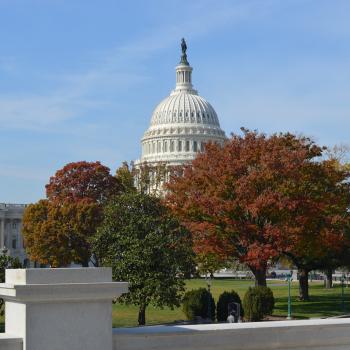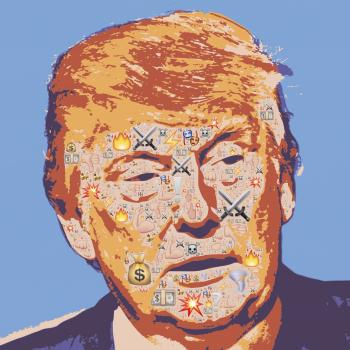Guys, I’ve got some serious reservations about Kentucky Senator Rand Paul. Somebody needs to go check on him.
During the primaries leading up to the 2016 election season, Senator Paul was a staunch critic of Donald Trump.
He saw Trump the way the rest of the field saw him: as a joke.
After Trump’s election, He wasn’t particularly jazzed on him, but we’re now at a point where it’s not that he’s accepted Trump as president, but that he’s crossed a line into something bizarre.
Senator Rand Paul has become one of President Trump’s devoted Russia-defenders, and it’s concerning.
In this latest show of devotion to the Kremlin, Senator Paul is introducing legislation that would lift the United States’ sanctions on Russian lawmakers.
The amendment, which will be introduced at a Senate Foreign Relations Committee meeting on Wednesday, stipulates that existing U.S. sanctions on members of the Russian Federal Assembly will be lifted if Moscow if agrees to lift its own sanctions on certain American members of Congress.
Sanctions were placed on certain Russian lawmakers by President Barack Obama, in retaliation for Russian interference in the 2016 election.
Paul has made sanctions relief a cause of his since returning from Moscow last month. During that trip, which he took without any of his colleagues, Paul met with Russian officials and delivered a letter from President Donald Trump to Russian President Vladimir Putin, which the White House later said was written at Paul’s request. In addition to meeting with former Russian President Mikhail Gorbachev, Paul had an hour-long sit-down with Konstantin Kosachev, the chairman of the foreign affairs committee in Russia’s legislature. During that meeting, according to Paul’s office, the senator invited Kosachev, who himself is banned from entering the U.S., to send Russian lawmakers to the U.S. Capitol to meet with their American counterparts. Paul’s amendment would be the first step toward allowing those Russians to travel to the U.S.
The Cato Institute, a libertarian think tank, paid for Paul’s trip.
If Kosachev’s name seems familiar, he’s the senior member of the Russian parliament identified by the former British intelligence officer, Christopher Steele, who authored the now-infamous Trump-Russia dossier.
Steele named Kosachev as the Kremlin representative who met with Trump lawyer, Michael Cohen, in the summer of 2016, allegedly to discuss how to conceal Russia’s involvement in the 2016 election.
Both Kosachev and Cohen deny this.
Senator Paul may be looking at an uphill battle, as far as getting his pro-Russia legislation passed.
The Foreign Relations Committee aren’t particularly sold on Russia, and at least one senator who has been sanctioned by the Russian government is already letting Paul know his efforts will be DOA.
“Thanks, but no thanks. As a senator who has been sanctioned by the Kremlin, I see absolutely no need for this amendment and strongly believe that sanctions should continue to be enhanced for Russian leadership rather than weakened,” Sen. Jeanne Shaheen (D-NH), who was denied a Russian visa last year, told The Daily Beast. “As the Kremlin continues to attack our institutions and democracy, this amendment would be a capitulation to Putin’s aggression.”
It really would. Russia has not owned up to their aggressive actions against our nation’s institutions, nor have they stopped.
It doesn’t help that we have a president who thinks more highly of a hostile foreign power than he does our own intelligence and law enforcement community.
Senator Paul isn’t helping.
“Senator Rand Paul believes that dialogue and diplomacy are vitally important to global peace,” Sergio Gor, the senator’s deputy chief of staff, told The Daily Beast. “It is important to remember that the United States and Russia hold more than 90% of all nuclear weapons. While there is plenty we might disagree on, we won’t be able to resolve those difference if the two sides aren’t engaging in dialogue.”
So why must the U.S. be the first to blink?
And no, Senator Paul, now is not the best time to bring up this kind of legislation.










